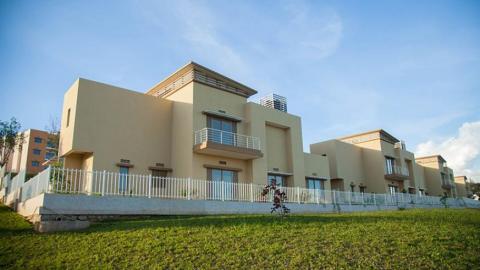
How realistic are proposals in property tax bill?
The Minister for Finance Claver Gatete recently introduced to Parliament a revised property tax bill geared towards increasing the Taxman’s revenues.
The Minister for Finance Claver Gatete recently introduced to Parliament a revised property tax bill geared towards increasing the Taxman’s revenues.
Real Estate is a booming industry for Rwanda and indeed, the government can collect more revenues from the sector. However, a lot more needs to be done to make sure the proposed tax regime does not hurt the nascent sector, experts say.
There are fears that the planned increase in taxes for residential property will discourage investors and yet there is an existing shortage of homes in the country, especially in the capital Kigali.
If the new bill is passed, residential properties will pay taxes valued at 1 percent of their worth. This is up from the 0.1 percent that was put in place in 2011.
Commercial properties will attract a 0.5 per cent tax rate.
One area, however, that will not be affected is affordable housing. According to the draft bill, homes with a value of under Rwf35 million will not pay the property tax in question.
Unfortunately, though, this segment is not attractive to investors and financiers. They argue that potential buyers of such homes do not appeal to banks that give out the mortgages. It is more like giving incentives to a market with little potential.
The new developments on the property tax are also being debated at a time when the capital gain tax of 5 percent was introduced to the sector.
With the capital gain tax, owners who sell their property would pay a tax of 5 percent of the sale. This, again, does not affect homes with a value of under Rwf 35 million.
One of the recommended moves that would see the tax revenues from real estate go up is to push for the transfer of leases to freehold titles.
At the moment, leases are issued for years that range from 20 – 99 with holders required to pay taxes based on the plot size and location. For example, a plot located in an upscale neighborhood like Kiyovu would pay more than that in the newly affluent Kibagabaga, and yet the later may have a more valuable structure on the plot.
However, with the freehold, the owners of the properties would pay an annual tax of 0.1 percent of the property value of the market.
Real Estate experts argue that if the revenue body pushed for this, they would collect more without necessarily hurting investment as well as have a level of fairness to the taxpayers.
And, for commercial buildings, with the supply currently increasing, the return on investment is going down as rental prices are falling. With other taxes such as rental income and corporate income tax of 30 percent, the yield for investors drops making the sector less attractive and consequently slows down the implementation of the Master Plan, especially in Kigali.
Alex Semarinyota, the chairperson of Rwanda Association of Real Estate Brokers (RWAREB), an umbrella body of real estate agencies or brokerage companies says that for the implementation of the new tax regime to be efficient, there is need for more studies and input from various stakeholders.
“We should not seem to be rushed but rather take a little time to gather and analyse the information that informs policy orientation and drafting or revision of laws as operationalizing tools. This, I think is what was the concern of the MPs which I subscribe to,” Semarinyota said.
He added; “How are all key players, say, real estate brokers and agents, property values, RRA, business community in general, citizens, and the various tiers of governance, and so on, organized and ready to facilitate cost-effective implementation?”
While Minister Gatete was presenting the draft bill a couple of weeks ago, some MPs agreed to the amending of the current law but asked the government to ensure the bill is well thought out.
MP Constance Mukayuhi Rwaka, the chairperson of Standing Committee on National Budget and Patrimony, urged that amendments in the draft law had better be realistic and reflect the reality of the country’s tax base.
A professional property valuer in Kigali who preferred anonymity equally indicated that every citizen should support the rationale behind the new Bill. Citizens should, he emphasised, support the country’s agenda on economic autonomy by contributing a portion of their wealth that the property represents through property tax.
However, he said, the right impact of the bill needs to be premised on fair market value and tax rates of the immovable property. A fair market value is an estimate of the market value of a property, based on what a knowledgeable, willing, and unpressured buyer would probably pay to an equally knowledgeable, willing, and unpressured seller in the market.
The debate on the new property tax will continue in parliament, but a lot more deliberations may have to be done to strike a balance that enables the government raise more tax revenues while not slowing the growth of the sector or discouraging investors.
Source: The Newtimes
